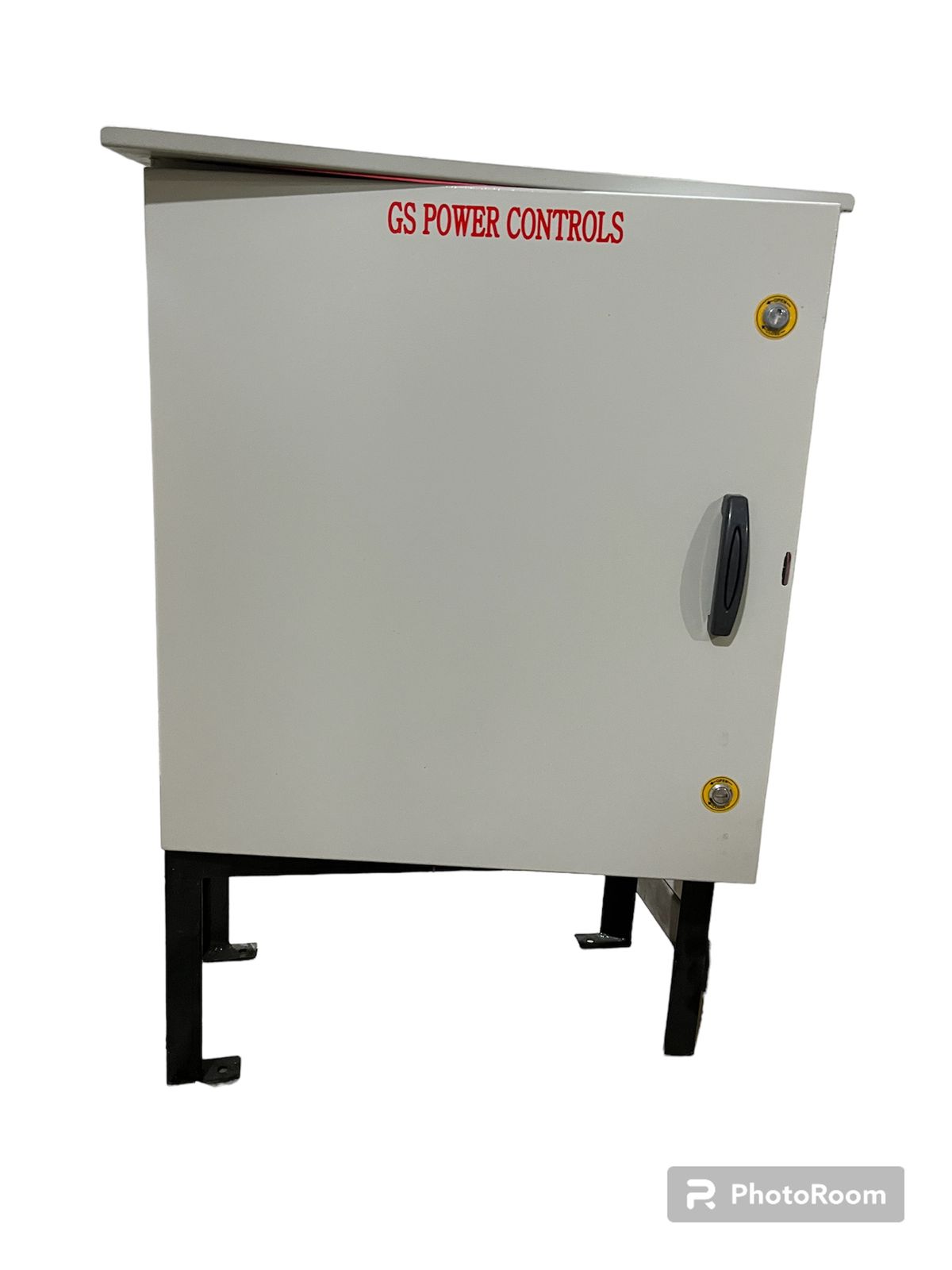Electrical panel manufacture in Delhi 1. Types of Electrical Panels • Distribution Panels: Distribute electricity to various circuits. • Control Panels: Manage and control equipment and processes. • Switchgear: Protect electrical equipment and manage load. • Motor Control Centers (MCCs): Control electric motors. 2. Design Considerations • Load Calculation: Assess total load requirements to determine panel specifications. • Component Selection: Choose circuit breakers, switches, relays, and other components based on load and application. • Material: Use appropriate materials for enclosures (e.g., metal or plastic) based on environmental conditions. 3. Manufacturing Process • Planning: Outline design specifications, materials, and components. • Fabrication: Cut and shape enclosure materials; drill holes for mounting components. • Assembly: Install components like breakers, busbars, and wiring within the enclosure. • Wiring: Connect components using appropriate gauge wires, following electrical codes. • Testing: Conduct inspections and tests (e.g., continuity tests, insulation resistance) to ensure safety and functionality. 4. Safety Standards and Regulations • Follow standards such as: o IEC (International Electrotechnical Commission) o NEC (National Electrical Code) o UL (Underwriters Laboratories) Standards • Ensure proper labeling, grounding, and circuit protection to comply with safety regulations. 5. Quality Control • Implement checks at various stages of production to ensure components meet quality standards. • Document processes and results for traceability and compliance. 6. Installation and Maintenance • Provide clear installation instructions and guidelines for end users. • Establish a maintenance schedule for regular inspections and servicing. 7. Market Trends • Smart Panels: Integration of IoT for remote monitoring and control. • Sustainability: Use of eco-friendly materials and energy-efficient designs. 8. Top Manufacturers • Consider researching established manufacturers like Schneider Electric, Siemens, ABB, and Eaton for insights on best practices and innovations in the field. Conclusion Manufacturing electrical panels involves a blend of engineering, safety compliance, and quality assurance. Understanding the specific needs of your market can guide your design and production processes effectively. If you need more detailed information on any specific section, feel free to ask!
Chat with us on WhatsApp
×
This is your website preview.
Currently it only shows your basic business info. Start adding relevant business details such as description, images and products or services to gain your customers attention by using Boost 360 android app / iOS App / web portal.
https://www.gspowercontrols.com/latest-update/electrical-panel-manufacture-in-delhi-1-types-of/0
Electrical panel manufacture in Delhi 1. Types of...

2024-10-15T12:41:08
Electrical panel manufacture in Delhi 1. Types of Electrical Panels • Distribution Panels: Distribute electricity to various circuits. • Control Panels: Manage and control equipment and processes. • Switchgear: Protect electrical equipment and manage load. • Motor Control Centers (MCCs): Control electric motors. 2. Design Considerations • Load Calculation: Assess total load requirements to determine panel specifications. • Component Selection: Choose circuit breakers, switches, relays, and other components based on load and application. • Material: Use appropriate materials for enclosures (e.g., metal or plastic) based on environmental conditions. 3. Manufacturing Process • Planning: Outline design specifications, materials, and components. • Fabrication: Cut and shape enclosure materials; drill holes for mounting components. • Assembly: Install components like breakers, busbars, and wiring within the enclosure. • Wiring: Connect components using appropriate gauge wires, following electrical codes. • Testing: Conduct inspections and tests (e.g., continuity tests, insulation resistance) to ensure safety and functionality. 4. Safety Standards and Regulations • Follow standards such as: o IEC (International Electrotechnical Commission) o NEC (National Electrical Code) o UL (Underwriters Laboratories) Standards • Ensure proper labeling, grounding, and circuit protection to comply with safety regulations. 5. Quality Control • Implement checks at various stages of production to ensure components meet quality standards. • Document processes and results for traceability and compliance. 6. Installation and Maintenance • Provide clear installation instructions and guidelines for end users. • Establish a maintenance schedule for regular inspections and servicing. 7. Market Trends • Smart Panels: Integration of IoT for remote monitoring and control. • Sustainability: Use of eco-friendly materials and energy-efficient designs. 8. Top Manufacturers • Consider researching established manufacturers like Schneider Electric, Siemens, ABB, and Eaton for insights on best practices and innovations in the field. Conclusion Manufacturing electrical panels involves a blend of engineering, safety compliance, and quality assurance. Understanding the specific needs of your market can guide your design and production processes effectively. If you need more detailed information on any specific section, feel free to ask!
2024-10-15T12:41:08
Keywords
- end users
- drill holes
- Smart Panels
- Market Trends
- specific needs
- best practices
- various stages
- Control Panels
- Quality Control
- proper labeling
- Safety Standards
- other components
- continuity tests
- circuit breakers
- Load Calculation
- specific section
- various circuits
- electrical codes
- safety compliance
- Top Manufacturers
- quality standards
- quality assurance
- remote monitoring
- safety regulations
- Document processes
- circuit protection
- Schneider Electric
- mounting components
- regular inspections
- Component Selection
- Distribution Panels
- production processes
- maintenance schedule
- detailed information
- electrical equipment
- panel specifications
- design specifications
- Design Considerations
- insulation resistance
- Manufacturing Process
- appropriate materials
- Motor Control Centers
- eco-friendly materials
- Control electric motors
- total load requirements
- appropriate gauge wires
- energy-efficient designs
- environmental conditions
- National Electrical Code
- Underwriters Laboratories
- shape enclosure materials
- Electrical panel manufacture
- Manufacturing electrical panels
- clear installation instructions
- International Electrotechnical Commission

Submit Your Enquiry